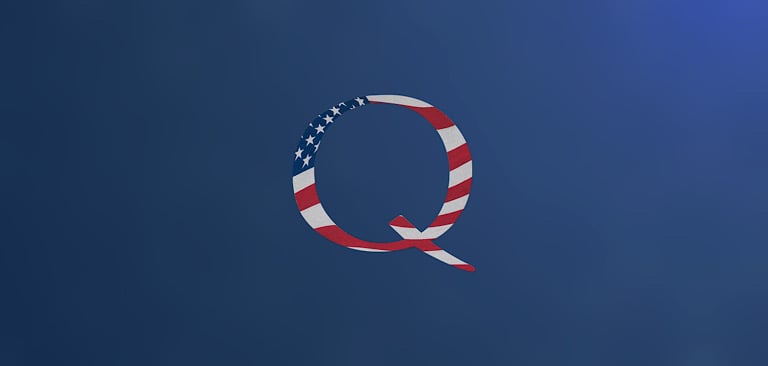Facebook is reportedly preparing to follow in the footsteps of Twitter and getting ready to purge QAnon content from its platform.
Followers of QAnon generally support President Trump and believe that an anonymous user account named “Q” shares information online about the plans of a high-level government insider or group of insiders who are working to take down the Deep State (a group inside the government that operates independently of elected officials to promote its own interests).
The New York Times reports that two Facebook employees, who spoke on the condition of anonymity, said that Facebook will be taking similar steps to those taken by Twitter in order to limit the reach of QAnon content and the that it will be announcing its plans next month.
The employees added that Facebook has been coordinating with Twitter and other social media companies when formulating its plans to purge QAnon content.
If Facebook and the other social media companies it’s purportedly coordinating with do blacklist QAnon, it would highlight the immense power these platforms have over public discourse with billions of users suddenly being blocked from discussing a topic.
In a previous demonstration of this power, Facebook and YouTube banned all mentions of the impeachment whistleblower’s name which was newsworthy at the time due to the role of the individual in kickstarting the impeachment probe against President Trump.
The Facebook employees didn’t specify how Facebook will suppress QAnon content but Twitter’s recent blacklisting of QAnon content involved banning thousands of accounts, blocking QAnon content and accounts from appearing in trends, recommendation, and search, and blocking links that are associated with QAnon content.
Facebook already has measures in place to blacklist content and accounts that it deems to be “dangerous,” “hate figures,” or “hate domains.” Once an individual, organization, or domain is blacklisted in this way, they’re banned from Facebook’s platforms and users are prohibited from mentioning them or linking to their content, unless the post criticizes or condemns them.
Applying one of these designations to QAnon would yield similar results to Twitter’s blacklisting of the topic and prevent accounts or posts associated with QAnon from appearing sitewide, unless they’re condemning QAnon.
Facebook previously purged some QAnon content from its platform in May with a total of 31 QAnon groups, pages, and accounts being taken down. In this instance, Facebook said the accounts were removed for “coordinated inauthentic behavior ahead of the 2020 election in the US.”
These pending restrictions on QAnon content are reflective of the increased sanctions Big Tech has placed on anything that it deems to be “conspiracy content” over the last few years.
In 2018, YouTube started adding Wikipedia panels to anything that was deemed to be conspiracy content but these panels didn’t affect its distribution.
In 2019, YouTube started reducing recommendations of anything that it deems to be borderline content with discussions of several conspiracy theories being suppressed as a result of this change.
In 2020, the Big Tech platforms started outright banning certain coronavirus discussions such as those linking coronavirus and 5G.
Not only has this increased censorship of anything that’s deemed to be a conspiracy by the Big Tech overlords laid the groundwork for what appears to be a blanket ban of QAnon accounts and content across all the major social media platforms but it’s also coming less than four months before the 2020 US presidential elections.
With QAnon followers being largely pro-Trump, this purported QAnon purge could also wipe out a notable portion of the accounts that support President Trump and restrict their ability to spread his message online during these decisive months.










